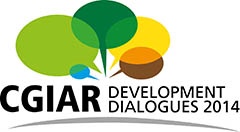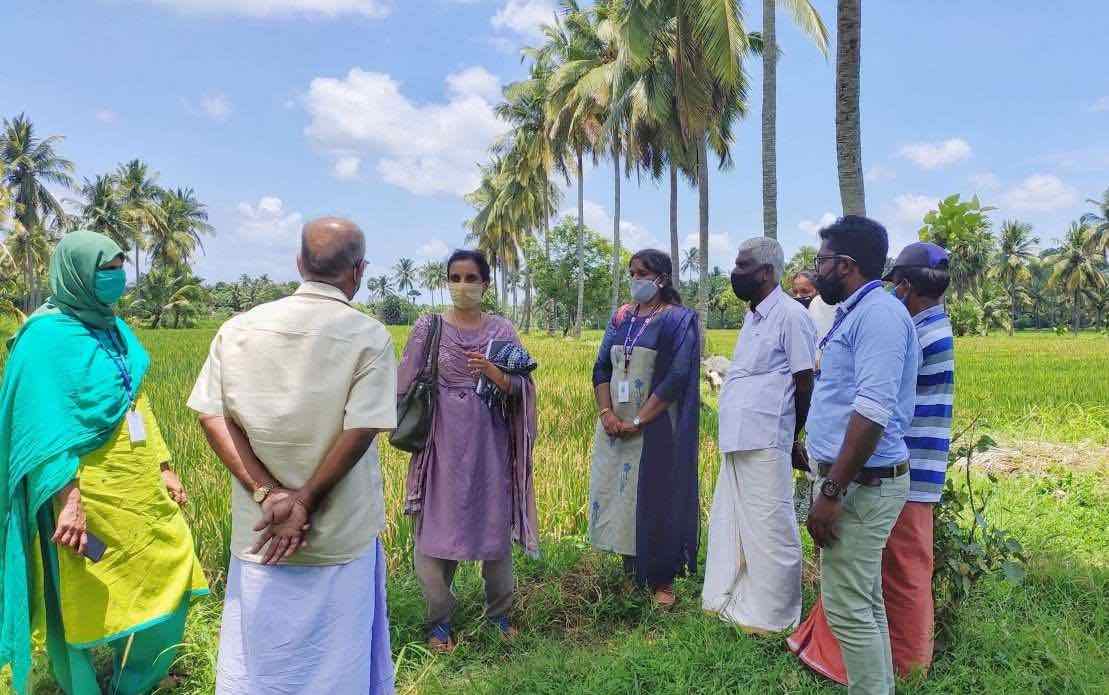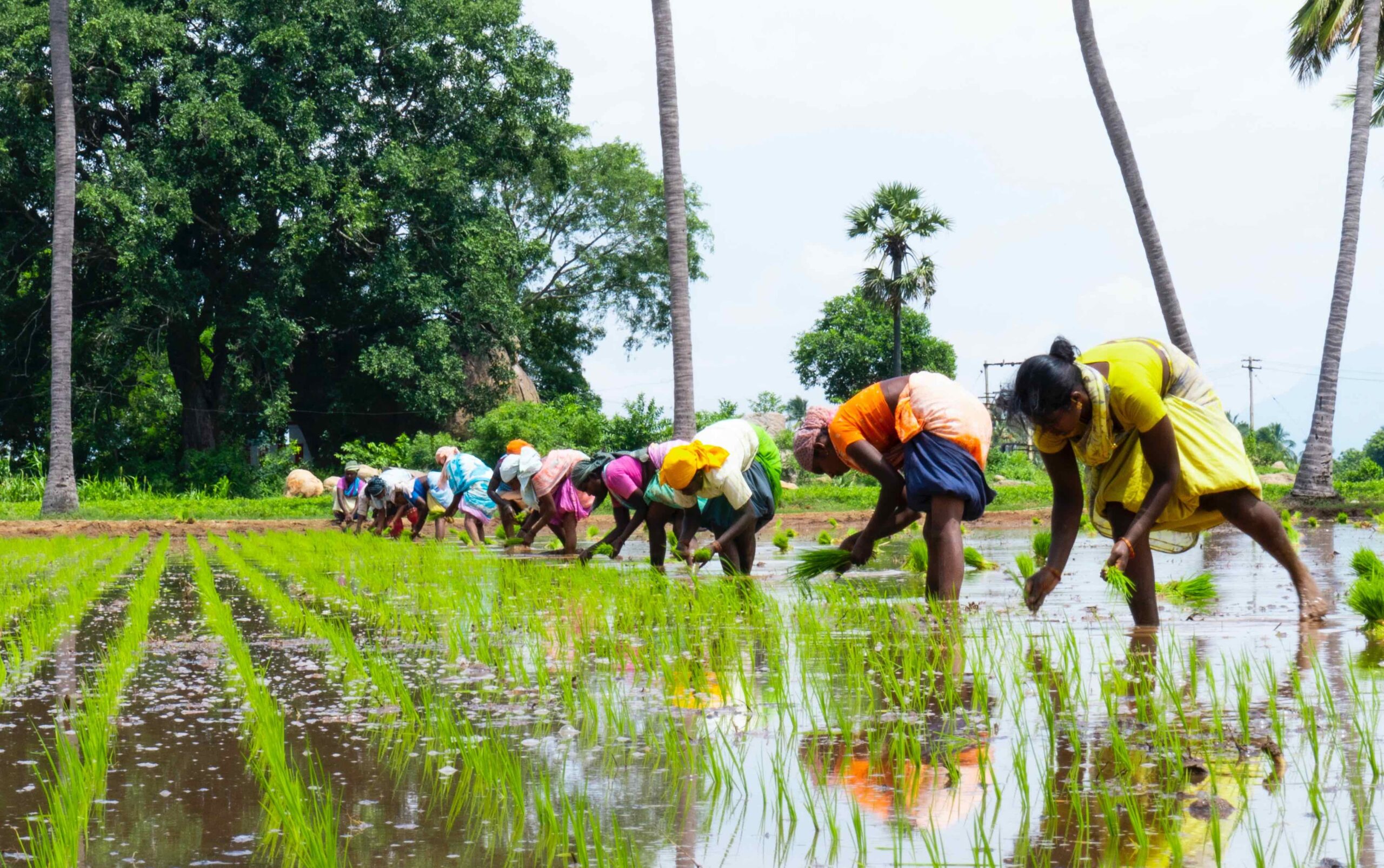The following post is a modified version of a story that originally appeared on the CGIAR Research Program on Policies, Institutions, and Markets (PIM) website.
Today nearly 450 million farmers work on less than 2 hectares of land. Collectively, these farmers and their families comprise about half the world’s undernourished people and more than half of people living in absolute poverty. Even amid rising global rates of urban migration, many countries are also experiencing rural population growth, and experts expect both trends to continue in the coming decades.
What can policymakers, development practitioners, NGOs, researchers, and farmers do to improve the ability of the world’s small farmers to contribute to food security—their own as well as that of the rising global population? Speakers in the CGIAR Development Dialogues’ session on expanding commercial opportunities for the rural poor each brought his and her own perspective but agreed on one thing: agriculture of smallholders is business, just as is the case for large commercial producers. It does need to be supported, but in a smart way.
According to Akinwumi Adesina, Minister of Agriculture and Rural Development of Nigeria, the way in which many programs aimed at reaching smallholder farmers are pitched to policymakers is a big part of the problem. “Agriculture for a long time was looked at as a development sector, a social sector – one in which the government has to keep pumping money and doesn’t really get much out of it. And, I think that has fundamentally affected the way in which we look at agriculture. First and foremost, we must change our mindset about that: agriculture is not a social sector, it’s not a development sector, it’s a business.”
So, if the smallholder agriculture is business, what does it mean? How do we support it smartly? What needs to be changed? Do we already have good examples? And wouldn’t a shift to a more commercial orientation leave the most vulnerable rural people behind?
As the discussion progressed, it became clear that “business” means expanding commercial opportunities for the rural poor through fostering commercialization, promoting techniques that raise productivity, developing value chains, investing in infrastructure, and enabling the private sector to drive agricultural growth as much as possible. It also means analyzing current policies and practices and adapting them to remove barriers for poor farmers on their way to the market.
Maria Kiwanuka, Minister of Finance, Uganda expressed full support for a more commercial orientation for smallholders: farmers should be treated as business people and agriculture, including primary production and processing, should contribute more to public revenues. Free inputs don’t help, create a “subsidy trap”, and can even detract from local market opportunities. Working with an agile and adaptive private sector will bring more sustainable benefits to the local farmers. We should take PPPs up to the next level, she said, and foster PPPPs: public private producer partnerships.
A thriving private agricultural sector requires public investment in infrastructure such as feeder roads, electrification, and water management, including irrigation systems. As an example, the Government of Uganda has consistently invested in improving the road system and has reaped benefits in improved food security. According to Dr. Shenggen Fan, Director General of the International Food Policy Research Institute (IFPRI), investment in improved roads, particularly rural feeder roads, has one of the highest returns on investment for developing countries, together with investments in agricultural research.
To ensure sustainable agricultural development and readiness of the private sector and farmers to engage, governments should create proper economic incentives and policies. Fan stressed the importance of securing land rights for smallholder farmers, and very specifically, improving access to land and credit for young people.
Discussing the role of governments and development institutions, Dr. Fan agreed that initial subsidies can be important for many farmers to enter the market. But subsidies should not continue for too long because in this case they bring inefficiencies. Minister Adesina noted that while subsidies had received negative reviews in the past, there is clearly the need for ‘growth enhancement support’ to smallholder agriculture in Africa, as in other parts of the world.
Another way to help smallholder farmers in developing countries move up the agricultural value chain is to support production and processing of the quality goods locally to retain a greater share of the added value. According to Minister Adesina, Africa accounts for 75 percent of global cocoa production yet receives only 5 percent of the estimated $80 billion of its commercial value.
Gerda Verburg, Chair of the UN Committee on World Food Security (CFS), decried the position of some development professionals that smallholders should stay small. “Many organizations defend smallholders’ right to stay small. But if this means that they stay poor and hungry – this is wrong.” Fan later picked up on a related point, adding that smallholder farmers with the means to expand their agricultural production should be given the opportunity to “move up” and get bigger; those who don’t have the opportunity to expand, however, should have opportunities for “moving out” to other parts of the agricultural value chain or other non-farm employment.
The business of agriculture needs smart policies based on good data and analysis. As Minister Adesina notably put it, “you don’t make policy decisions based on noise, you make them based on evidence.” Research, such as that undertaken by CGIAR Centers and their many partners, helps generate the evidence. But, as noted by Kanayo Nwanze, President of the International Fund for Agricultural Development (IFAD) during the morning plenary, “research is not only the prerogative of scientists. Keeping smallholders in research gives us more eyes for observation and discovery.”
In this light, smallholder farmers and the researchers and policymakers working to support them may be viewed as business partners. And, based on the level of enthusiasm among the panelists and many others in attendance, it’s time to get down to business and show the world that, as Minister Adesina said “agriculture is cool, that it’s a cool business!”
With contributions from Peter Shelton







